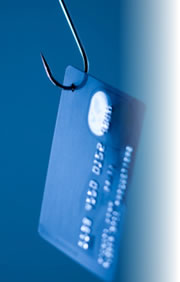5 things you should know about credit card fees

Federal Reserve rules limit the penalty fees that credit cards charge. The rules, which stem from the Credit CARD Act signed into law in May 2009, were effective August 22, 2010, and are in addition to other rules, such as restrictions on interest rate hikes, that went into effect earlier.
Here are five things you should know about credit card penalty fees:
1. Credit Card Late Fee Cap
Late fees are capped at $25, except in a couple of instances. The fee can go as high as $35 if you were late with another payment in the previous six months or your credit card company can prove it incurred costs that justify charging a higher fee.
In addition, credit card companies can’t charge late fees that exceed minimum payments. So if your minimum payment for the month is only $15, your credit card company can’t charge you any more than $15 for paying late.
2. Credit Card Over-Limit Fee Cap
Your credit card issuer can’t charge a fee for exceeding your credit limit unless you opt into a program that allows for such credit limit flexibility. If you do opt in, the fee can’t exceed the amount you charge over your limit. So if you go over your credit limit by $5, the over-limit fee can’t be any more than 5 bucks.
3. No More Credit Card Inactivity Fees
Credit card companies can’t charge fees for not using your credit card, a practice many companies adopted in the last couple of years.
4. One Fee at a Time
A single mistake, such as a late payment, can trigger only one fee. Your credit card company can’t charge multiple fees for a single event or transaction.
5. Credit Card Rates: Issuers Must Explain Increases
Before it can raise your rate, your credit card company must explain why it’s proposing a rate hike. And it must re-evaluate the rate every six months and decrease it within 45 days of the evaluation when appropriate.
In addition to the new limitations on fees, the Federal Reserve ordered credit card companies to evaluate any rate increases they made since January 1, 2009, when many issuers jacked up rates in anticipation of new federal rules — and to lower rates if the reasons for the increases no longer exist. Regulators plan to enforce rate cuts when necessary.
Disclaimer:The information in this article is believed to be accurate as of the date it was written. Please keep in mind that credit card offers change frequently. Therefore, we cannot guarantee the accuracy of the information in this article. Reasonable efforts are made to maintain accurate information. See the online credit card application for full terms and conditions on offers and rewards. Please verify all terms and conditions of any credit card prior to applying.
This content is not provided by any company mentioned in this article. Any opinions, analyses, reviews or recommendations expressed here are those of the author’s alone, and have not been reviewed, approved or otherwise endorsed by any such company. CardRatings.com does not review every company or every offer available on the market.
Published (Modified )